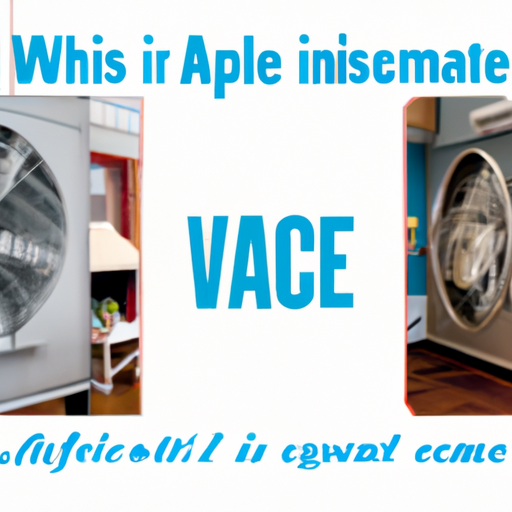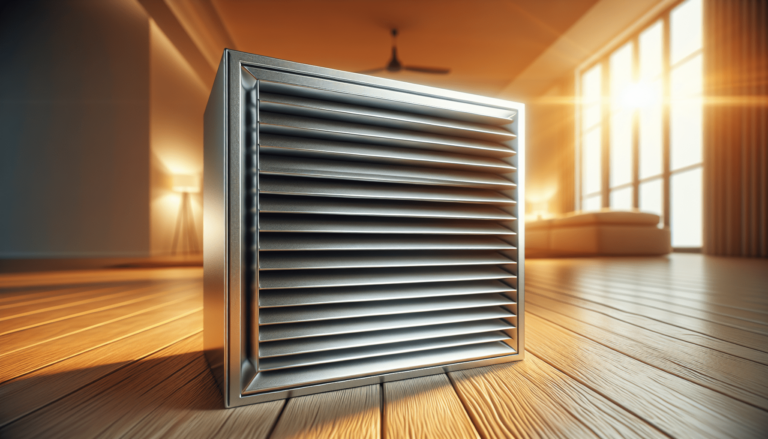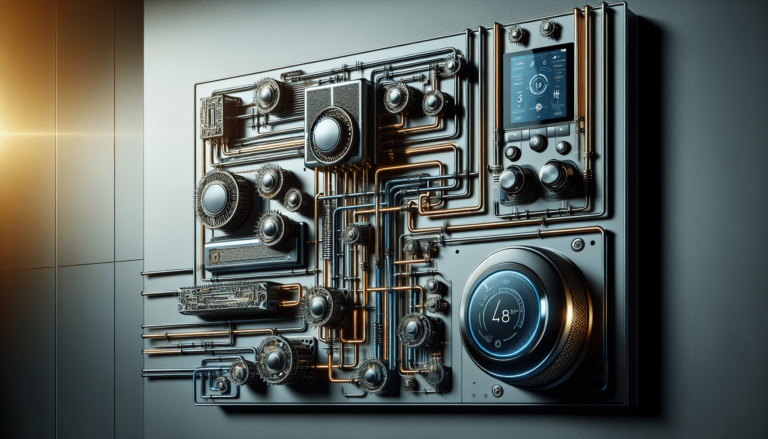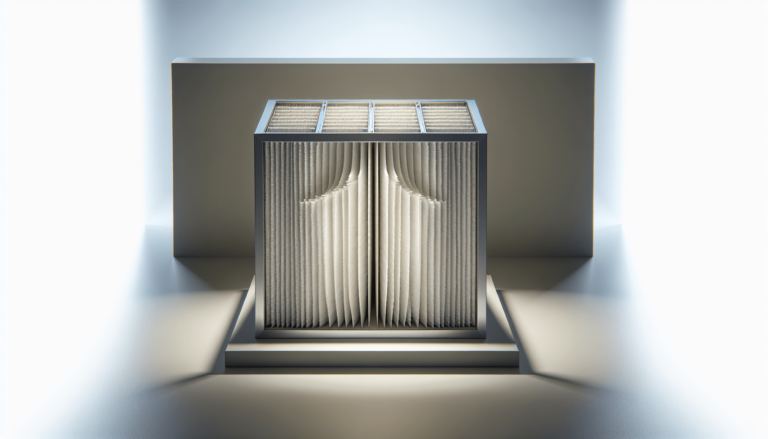

HVAC Services
Get Professional Repairs From The Area's Trusted HVAC Technicians. Ask About Our Services! We Offer Professional Heating & Cooling System Repairs And Guarantee Long-Lasting Results.
Got Question? Call us: (850) 678-2665Financing
Addressing Common HVAC Myths And Misconceptions
Addressing Common HVAC Myths And Misconceptions - Learn the truth behind popular misconceptions about heating, ventilation, and air conditioning systems. Separate fact from fiction and optimize your HVAC system for energy efficiency. A must-read for homeowners.

Are you tired of being bombarded with conflicting information about HVAC systems? Well, fret no more, because in this article, we will address some of the most common myths and misconceptions surrounding heating, ventilation, and air conditioning. From debunking the idea that closing vents in unused rooms will save energy, to clarifying the truth about whether ceiling fans can cool a room on their own, we’ve got you covered. So, get ready to separate fact from fiction, as we shed light on the truth behind these HVAC myths. If you’ve ever wondered about the efficacy of your home’s HVAC system, this article is a must-read for you.

1. HVAC Myth: Closing vents in unused rooms saves energy and improves efficiency
1.1. Myth: Closing vents in unused rooms saves energy
One common misconception is that closing vents in unused rooms will save energy. However, this is actually a myth. When you close the vents in a room, it may seem like you are reducing the amount of energy being used to cool or heat that room. However, what actually happens is that the air pressure in your HVAC system increases, which can cause leaks or ductwork damage. In addition, closing vents can disrupt the balance of your HVAC system and lead to reduced overall efficiency. It’s always best to let the system distribute air evenly throughout your home.
1.2. Myth: Closing vents in unused rooms improves efficiency
Another myth related to closing vents in unused rooms is that it improves efficiency. Some people believe that by closing off certain rooms, they can redirect more air to the areas they are using. However, this is not the case. Closing vents can disrupt the airflow balance in your HVAC system, leading to decreased efficiency. Your HVAC system is designed to distribute air evenly throughout your home, and altering this balance can cause unnecessary strain on the system and potentially lead to higher energy consumption. It’s important to keep vents open to maintain a properly functioning HVAC system.
2. HVAC Myth: Lowering the thermostat temperature dramatically cools the room faster
2.1. Myth: Lowering the thermostat temperature dramatically cools the room faster
Many people believe that if they lower the thermostat temperature dramatically, the room will cool down faster. However, this is a misconception. HVAC systems work at a consistent pace to cool or heat a room, regardless of the temperature setting. Lowering the thermostat to an extremely low temperature will not make the room cool down any faster. It will only make the HVAC system work harder and potentially lead to unnecessary wear and tear on the system. It’s best to set the thermostat to a comfortable temperature and allow the system to work efficiently.
3. HVAC Myth: Regularly changing the air filter is unnecessary
3.1. Myth: Regularly changing the air filter is unnecessary
Some people believe that regularly changing the air filter in their HVAC system is unnecessary. However, this is a myth that can have negative consequences. The air filter in your HVAC system plays a crucial role in maintaining good indoor air quality and protecting the system from dust, debris, and pollutants. Over time, the air filter can become clogged, restricting airflow and causing the system to work harder. This can lead to reduced efficiency and increased energy consumption. It’s important to regularly change your air filter according to the manufacturer’s recommendations to ensure optimal performance and maintain good indoor air quality.
4. HVAC Myth: Fans cool the air in the room
4.1. Myth: Fans cool the air in the room
Many people mistakenly believe that fans cool the air in a room. While fans can create a cooling sensation by evaporating sweat from your skin, they do not actually cool the air. Fans circulate air in a room, creating a breeze that helps to evaporate moisture from your skin and make you feel cooler. However, the temperature of the air in the room remains the same. It’s important to note that fans are most effective when used in conjunction with an air conditioning system. They can help distribute cool air throughout the room and make you feel more comfortable, but they do not actually lower the temperature.
5. HVAC Myth: Bigger HVAC systems are always better
5.1. Myth: Bigger HVAC systems are always better
Another common misconception is that bigger HVAC systems are always better. While it may seem logical that a larger system would cool or heat a room more effectively, this is not necessarily the case. In fact, an oversized HVAC system can actually lead to inefficient operation and increased energy consumption. A system that is too large for your home will cycle on and off more frequently, which can lead to temperature fluctuations, reduced comfort, and unnecessary wear and tear on the system. It’s important to have a properly sized HVAC system based on the specific requirements of your home to ensure optimal performance and energy efficiency.
6. HVAC Myth: Air conditioners only cool the air
6.1. Myth: Air conditioners only cool the air
Some people believe that air conditioners only cool the air in a room. However, this is not true. Air conditioners not only cool the air but also remove moisture from it, reducing humidity levels. When the humidity is high, it can make the room feel uncomfortable and clammy. Air conditioners help create a more comfortable indoor environment by removing excess moisture from the air. This is especially beneficial in humid climates. So, air conditioners not only cool the air but also help regulate humidity levels to enhance overall comfort.
7. HVAC Myth: HVAC systems don’t require regular maintenance
7.1. Myth: HVAC systems don’t require regular maintenance
Another common myth is that HVAC systems don’t require regular maintenance. This misconception can lead to costly repairs and reduced system lifespan. Regular maintenance is essential to keep your HVAC system running smoothly and efficiently. Maintenance tasks, such as cleaning coils, lubricating moving parts, and checking refrigerant levels, can help identify and fix minor issues before they turn into major problems. Additionally, regular maintenance can improve energy efficiency, extend the lifespan of your HVAC system, and ensure optimal performance. It’s important to schedule routine maintenance with a professional HVAC technician to keep your system in top shape.
8. HVAC Myth: Programmable thermostats are a waste of money
8.1. Myth: Programmable thermostats are a waste of money
Some people believe that programmable thermostats are a waste of money. However, this couldn’t be further from the truth. programmable thermostats offer numerous benefits and can help save energy and money. With a programmable thermostat, you can set different temperature schedules for different times of the day or days of the week. This allows you to adjust the temperature based on when you are at home or away, maximizing energy efficiency. By reducing energy consumption when you don’t need heating or cooling, programmable thermostats can lead to significant energy savings over time. They provide convenience, comfort, and improved energy efficiency, making them a valuable investment for any homeowner.

9. HVAC Myth: Setting the thermostat to a low temperature heats the room faster
9.1. Myth: Setting the thermostat to a low temperature heats the room faster
A common misconception is that setting the thermostat to a low temperature will heat the room faster. However, the thermostat temperature setting does not affect the speed at which the room is heated. Your HVAC system works at a consistent pace to heat the room, regardless of the temperature setting. Setting the thermostat to a very low temperature will not make the room warm up any quicker. It will only make the system work harder and potentially lead to higher energy consumption. It’s best to set the thermostat to a comfortable temperature and allow the system to heat the room efficiently.
10. HVAC Myth: Closing off unused rooms saves energy
10.1. Myth: Closing off unused rooms saves energy
Some people believe that closing off unused rooms will save energy. However, this is a myth that can actually lead to increased energy consumption. When you close off a room, the air pressure in your HVAC system increases, which can cause leaks or ductwork damage. This can lead to air escaping from the system and reduced overall efficiency. Additionally, closing off rooms can disrupt the balance of your HVAC system, leading to increased strain and potentially higher energy consumption. It’s best to keep all rooms open and allow the system to distribute air evenly throughout your home for optimal energy efficiency.
In conclusion, it’s important to address these common HVAC myths and misconceptions to ensure that you make informed decisions about your heating and cooling system. Understanding the truth behind these myths can help you maximize energy efficiency, extend the lifespan of your HVAC system, and create a comfortable indoor environment. It’s always advisable to consult with a professional HVAC technician for any concerns or questions you may have regarding your HVAC system. Remember, a well-maintained and properly operated HVAC system can provide years of reliable performance and comfort for your home.





